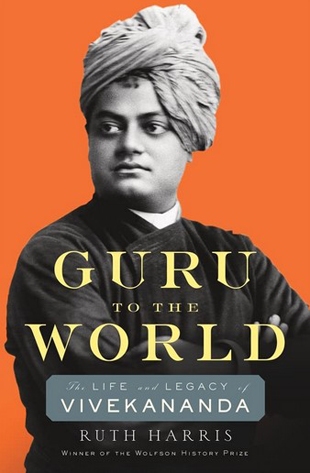“[Vivekananda] emphasized India’s special spiritual vocation: ‘Eastern wisdom: If there is one word in the English language to represent the gift of India to the world, if there is one word in the English language to express the effect which the literature of India produces upon mankind, it is this one word, fascination.’
“He thus embraced in India the orientalist stereotypes of fascination even though, in the West, he had focused mostly on rationality and devotion. He credited India with cultivating the ‘spiritual food’ that the West needed to stop its own self-destruction — a theme that Gandhi would develop: ‘the whole of Western civilization will crumble to pieces in the next fifty years if there is no spiritual foundation. It is hopeless and perfectly useless to attempt to govern mankind with the sword.’ He also argued that ‘constitutional government, freedom, liberty, and parliaments — are but jokes,’ making short shrift of Western liberalism. This critique was important — it was a condemnation of Indian reformism that believed in the ameliorative power of the state, and was matched by an equally strong critique of ‘society’ — its customs and hierarchies — when he denounced conservative don’t-touchism and Brahmin exclusions of Shudras (low-caste Hindus).
“India had endured, he reminded them, while other civilizations had perished, through renunciation…. He stated that the sadhu laughed at physical death, because he knew he was the ‘Infinite, the Omnipresent, the Omniscient.’ Here, weakness was strength, and it was this power that Vivekananda sought to cultivate.”
